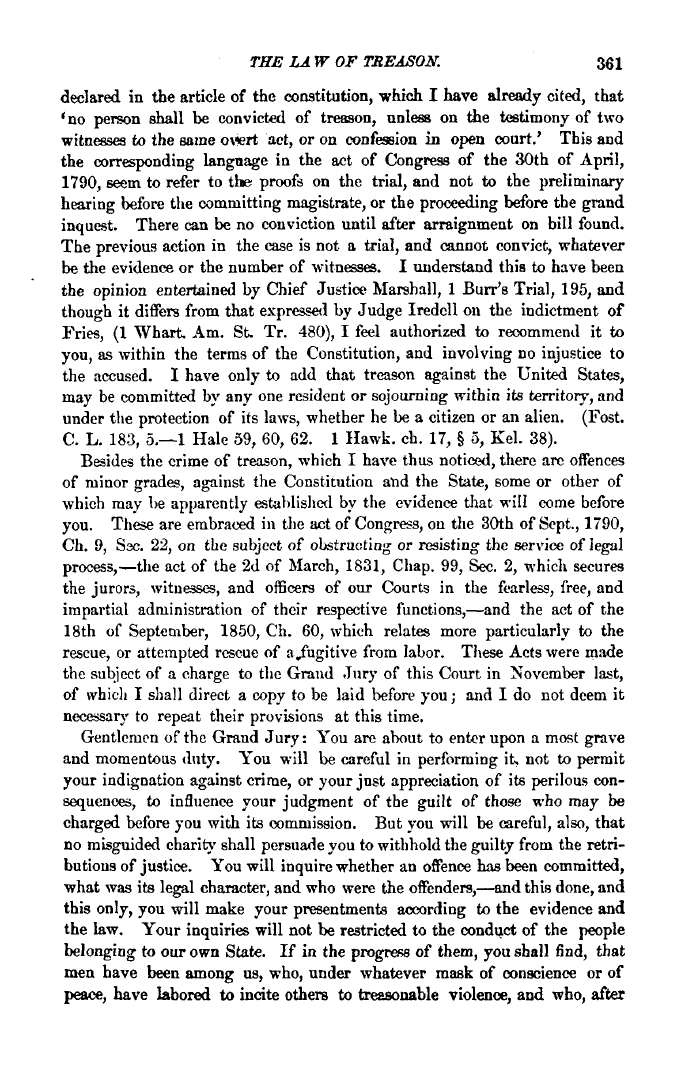 |
||||
 |
||||
| THE LAW OF TREASON. 361 declared in the article of the constitution, which I have already cited, that 'no person shall be convicted of treason, unless on the testimony of two witnesses to the same overt act, or on confession in open court.' This and the corresponding langaage in the act of Congress of the 30th of April, 1790, seem to refer to the proofs on the trial, and not to the preliminary hearing before the committing magistrate, or the proceeding before the grand inquest. There can be no conviction until after arraignment on bill found. The previous action in the case is not a trial, and cannot convict, whatever be the evidence or the number of witnesses. I understand this to have been the opinion entertained by Chief Justice Marshall, 1 Burr's Trial, 195, and though it differs from that expressed by Judge Iredcll on the indictment of Fries, (1 Whart. Am. St. Tr. 480), I feel authorized to recommend it to you, as within the terms of the Constitution, and involving no injustice to the accused. I have only to add that treason against the United States, may be committed by any one resident or sojourning within its territory, and under the protection of its laws, whether he be a citizen or an alien. (Fost. C. L. 183, 5.—1 Hale 59, 60, 62. 1 Hawk. ch. 17, § 5, Kel. 38). Besides the crime of treason, which I have thus noticed, there arc offences of minor grades, against the Constitution arid the State, some or other of which may be apparently established by the evidence that will come before you. These are embraced in the act of Congress, ou the 30th of Sept., 1790, Ch. £), Ssc. 22, on the subject of obstructing or resisting the service of legal process,—the act of the 2d of March, 1831, Chap. 99, Sec. 2, which secures the jurors, witnesses, and officers of our Courts in the fearless, free, and impartial administration of their respective functions,—and the act of the 18th of September, 1850, Ch. 60, which relates more particularly to the rescue, or attempted rescue of a^fugitive from labor. These Acts were made the subject of a charge to the Grand Jury of this Court in November last, of which I shall direct a copy to be laid before you; and I do not deem it necessary to repeat their provisions at this time. Gentlemen of the Grand Jury: You are about to enter upon a most grave and momentous duty. You will be careful in performing it, not to permit your indignation against crime, or your jnst appreciation of its perilous consequences, to influence your judgment of the guilt of those who may be charged before you with its commission. But you will be careful, also, that no misguided charity shall persuade you to withhold the guilty from the retri-butions of justice. You will inquire whether an offence has been committed, what was its legal character, and who were the offenders,—and this done, and this only, you will make your presentments according to the evidence and the law. Your inquiries will not be restricted to the conduct of the people belonging to our own State. If in the progress of them, you shall find, that men have been among us, who, under whatever mask of conscience or of peace, have labored to incite others to treasonable violence, and who, after |